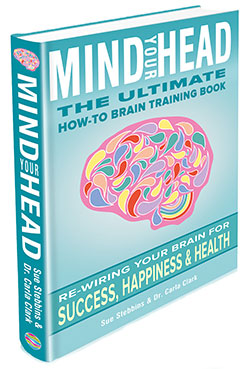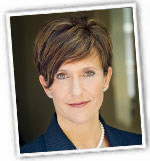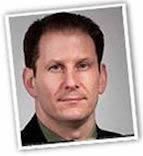Cognitive conceptions of language and the development of autobiographical memory.
John Sutton
Page 3
Source: http://www.phil.mq.edu.au/staff/jsutton/CognitiveConceptionsofLanguage.htm
4. Language, thought, and memory: some anti-expressivist options
The core information-processing assumption of cognitive science renders thought ontologically independent of public language. Whether your favoured picture of mental representation has us thinking in an innate ‘Mentalese’ or in some nonlinguistic medium, the contents of mental representations are independent of the meaning of any natural language utterances. To put the point differently, legitimate disagreements within cognitive science over the question of whether thinking is itself linguistic in form have coexisted with general consensus that the key function of language is to act as a conduit or channel for the communication of thoughts . I’ll call the thesis that thinking is itself linguistic in form ‘lingualism’, following John Preston (1997, p.1) ; and I’ll call the independent thesis that (to put it strongly) the primary function of language is (merely) to express or communicate thoughts ‘expressivism’, following Christopher Gauker (1999) . It’s important to stress that there are also many intermediate views on each question.
Given this division of the issues, I will first point out that the general expressivist consensus has recently come under attack. I’ll outline some varieties of anti-expressivism, the view that public language has important functions (notably cognitive functions) which are additional to its communicative functions. There are both lingualist and anti-lingualist routes to anti-expressivist cognitive conceptions of language. It’s on this latter combination (anti-lingualism and anti-expressivism), as defended by Andy Clark and others sympathetic to recent dynamical movements in cognitive science, that I want to focus.
Again, I’m not here arguing against expressivism, but simply pointing out some anti-expressivist options which are in fact compatible with certain strands of cognitive science. In particular, the current developmental psychology of AM suggests a fairly strong variety of anti-expressivism. But if that’s so, and if in this domain at least it turns out to be fruitful to reject expressivism, we can then ask whether the particular cognitive roles of language which influence autobiographical memory sit better with a lingualist or an anti-lingualist conception of the nature of representation in AM. As I’ve said, lingualism and expressivism are quite independent theses, and an anti-expressivist can consistently opt either for lingualism or for its denial. But I’ll suggest that, to the extent they have taken a view at all, developmental psychologists of memory have in fact too easily slipped into lingualism. With a clearer picture of the conceptual terrain in play, it is equally plausible to interpret their variety of anti-expressivism as being also anti-lingualist.
An anti-expressivist, then, is someone who thinks that language has some direct roles to play in cognitive processing, over and above its obvious expressive functions . Some argue that thought conceptually depends on language. For Gauker (1999), for instance, the essence of intentional states lies "in the role that talk of intentional states plays in the conduct of productive conversation": the primary function of thought, one might say, is to aid and abet language, rather than the reverse. As Gauker’s claim suggests, such a priori rejections of expressivism tend to be anti-realist about the mental, and thus to sit in some tension with the cognitive scientific project, and with any inquiry into thought in non-human animals. But there are also empirically-grounded routes to anti-expressivism. Peter Carruthers, for instance, argues that natural language is the medium of conscious propositional conceptual thinking, and of domain-general thought and inference (2001, sections 4-6). Carruthers thus sees thought as conceptually independent of language, and allows that much thinking can occur without language: but he claims that a modularist take on cognitive processing, combined with attention to recent evidence about the integration of information across domains, suggests that as a matter of fact certain kinds of thinking requires natural language. Carruthers’ particular route to anti-expressivism is, then, specifically one which also commits him to lingualism.
Another lingualist route to anti-expressivism is the radical empiricist idea of language as mind-structuring. On the view sometimes denigrated as the ‘Standard Social Science Model’ of the mind (Pinker 1996), thought is wholly structured, in both form and content, by the particular linguistic environment of the culture in which the mind grows. In controversies over colour naming, such views suggested that colour categories are entirely arbitrary labels, idiosyncratically derived in each linguistic community, applied to a fundamentally unstructured colour space. But, as Carruthers points out (2001, section 3), the idea of the mind as a socio-linguistic construction is also implicit in Dennett’s (1991) more biologically-grounded view of the mind as a virtual Joycean machine. For Dennett, language colonizes the mind, reprogramming or altering the brain’s modes of representation so that we come to think in ways quite different from those in which any creatures without language can think.
Many cognitive scientists have been uneasy with the apparently relativistic implications of strongly mind-structuring views of language. It has proved difficult to distinguish between stronger and weaker versions of the view, both in general and in specific domains like colour and memory: but there is live evidence in support of realistically weakened versions of the idea that there are certain specific linguistic effects on perception, memory, problem-solving, inference, and so on (for a range of views see Kay and Kempton 1984; Hunt and Agnoli 1991; Hardin and Banaji 1993; Lucy 1999). In the case of memory, the use of linguistic labels to remember (for example) visual forms can have a clear effect on what is remembered, even when the labels have only an arbitrary relation to the shapes. And well-established research on misinformation and suggestibility shows that linguistic insertions can infect or bias subsequent recall of a visual scene (for a summary see Hardin and Banaji 1993, pp.288-292).
With this modification of the more extreme view that language structures the mind, we retain the core anti-expressivist idea that language has a whole range of direct cognitive functions, influencing what’s available for explicit memory, or packaging and chunking information to aid encoding. On such modified views, language need not determine thinking, but may for example afford various cognitive tendencies (Lucy, 1999). But with this kind of modification, we are shifting from lingualist towards anti-lingualist varieties of anti-expressivism. And indeed this is precisely what Andy Clark suggests in a series of commentaries on anti-expressivist views (Clark 1996, 1997 chapter 10, forthcoming; compare Jackendoff 1996). Clark’s ‘supra-communicative’ view of language is that public language acts as a computation-transforming instrument, not just expressing pre-existing thoughts but expanding the realm of the thinkable (Clark 1996, 93-4). This is the view which, I suggest, would be attractive to developmental theorists of autobiographical memory if they can accept the shift from lingualist to anti-lingualist interpretations of their framework.
We Make it Easy to Succeed
Successwaves, Intl.
Brain Based Accelerated Success Audios
 |






